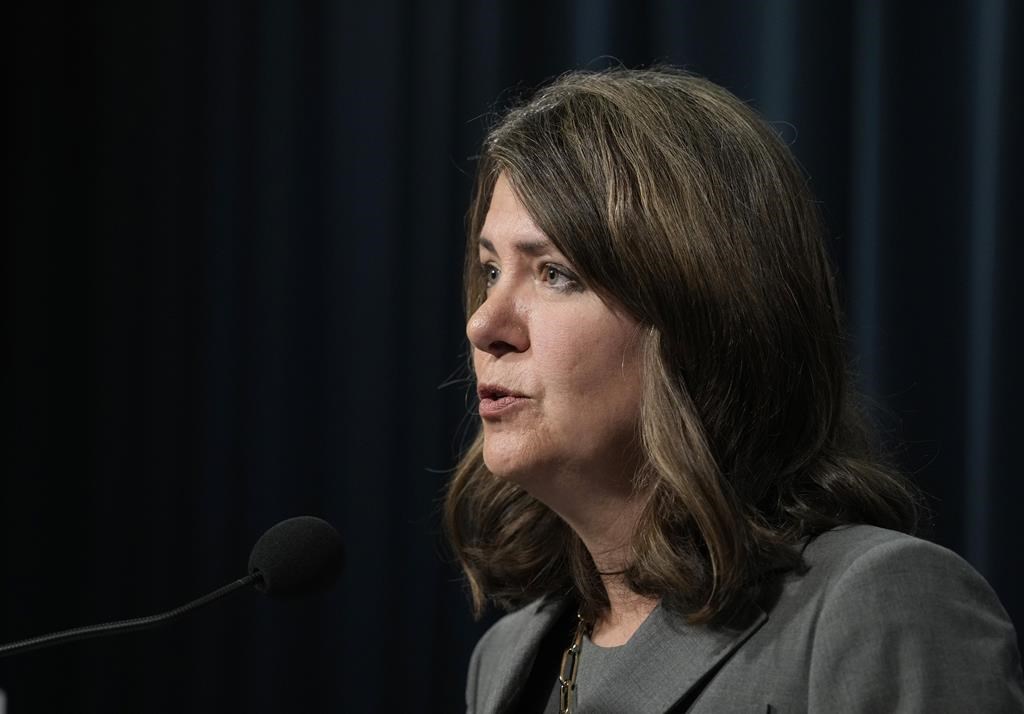Experts weigh impact from Supreme Court ruling on other federal environmental moves

Some legal experts say a Supreme Court of Canada ruling that found much of Ottawa’s environmental assessment law unconstitutional will have no impact on other federal moves such as clean electricity regulations or oilsands emissions caps.
“It will be an uphill fight for Alberta to challenge new greenhouse gas emission law, and Friday’s decision doesn’t change that,” said Stewart Elgie, a professor of law and economics at the University of Ottawa.
The Supreme Court found the federal Impact Assessment Act unconstitutional. Although the decision did not throw out the law, the court said many provisions gave Ottawa powers that were too broad and not linked closely enough to what the Constitution calls federal business.
Advertisement
Some political leaders immediately went on the offensive, claiming the ruling carved out areas of exclusive provincial jurisdiction. They said future federal moves to regulate greenhouse gas emissions are dead in the water.
“We call on the federal government to learn the lessons from this decision and abandon their ongoing unconstitutional efforts to seize regulatory control over the electricity and natural resource sectors of all provinces,” said a statement from Alberta Premier Danielle Smith.
Premier Scott Moe in Saskatchewan made a similar link between the ruling and coming climate regulation.
There is none, said Elgie.
Both the anticipated emissions cap and clean electricity rules are securely grounded in Ottawa’s criminal power, he said.
Advertisement
“Friday’s decision doesn’t affect the federal government’s ability to pass new climate legislation. (The decision) didn’t deal with the criminal law, which is the basis for new climate law.”
Elgie said Alberta’s legal arguments concede the point.
A document Alberta submitted to the Supreme Court says: “The federal government can regulate (greenhouse gas) emissions through the proper exercise of its enumerated powers – such as over the criminal law.”
But lawyer Brett Carlson, who argued against the federal bill in the top court, said the legal precedents for the use of Ottawa’s criminal power may be dated.
“The constitutional framework they have for it is a smattering of cases from decades ago,” he said. “The previous constitutional jurisprudence will need to be updated.”
Advertisement
Alberta looks likely to challenge Ottawa’s use of criminal power, Carlson said.
Andrew Leach, an environmental economist in the University of Alberta’s law faculty, pointed out that the Supreme Court decision upheld federal use of criminal power in environmental legislation as recently as 2020.
“They say in that case that environmental protection is a valid purpose for criminal law.”
Criminal law, for constitutional purposes, refers to laws that propose a prohibition, a penalty and a legitimate public purpose. It doesn’t necessarily mean that law is in the Criminal Code.
Different federal governments have used that power to pass regulations on matters such tobacco advertising.
Advertisement
University of Calgary resource law professor Martin Olszynski said it’s clear Ottawa has the power to enact legislation on emissions caps or clean electricity. The question is whether the wording of those rules will pass legal muster.
“We know that they can do it,” he said. “The question is whether the current draft regulations hit that sweet spot in terms of being sufficiently like the prohibition on tobacco advertising.”
Federal Environment Minister Steven Guilbeault said the decision doesn’t affect other climate initiatives.
“The opinion of the court does not call into question other regulatory initiatives under development, and we are confident that they are within the purview of the federal government,” he said in a statement. “The clean electricity regulations would be enacted using the same regulatory authority as the coal regulations.”
Guilbeault said Ottawa would continue to work with the provinces on greenhouse gas regulation.
Advertisement
Still, Elgie said environmental regulation in Canada continues to be a work in progress.
“There’s always some constitutional risk in drafting new federal environmental law,” he said. “You’re trying to predict what the courts will say about it.”
This report by The Canadian Press was first published Oct.16, 2023.
Bob Weber, The Canadian Press
Advertisement